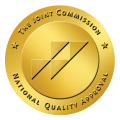Are you concerned about the rising rates of opioid addiction? Enter AvertD, the first FDA-authorized polygenic risk test. AvertD is a groundbreaking tool that claims to identify the risk for opioid addiction through genetics. But hold on – why is this FDA-approved solution facing skepticism and backlash?
What is AvertD?
AvertD is a genetic test designed to predict an individual’s risk of developing opioid addiction. By analyzing specific genes related to how the body processes opioids, this tool aims to provide personalized insights into one’s susceptibility to addiction. The idea behind AvertD is that by understanding a person’s genetic predisposition, healthcare providers can tailor prevention strategies and treatment plans accordingly.
This innovative approach has sparked both interest and controversy within the medical community and beyond. Supporters believe that leveraging genetics could revolutionize addiction prevention and intervention efforts. On the other hand, critics question the accuracy and effectiveness of using genetic testing in this context.
Despite the varying opinions, AvertD represents a shift towards more personalized healthcare solutions aimed at addressing complex issues like opioid addiction.
Why is There Backlash after the FDA approved it?
After the FDA approved AvertD, a new drug designed to identify genetic risks for opioid addiction, there has been a wave of skepticism and backlash within the medical community. Critics raise concerns about the effectiveness and potential misuse of such genetic testing. Some fear that it may lead to stigmatization or discrimination against individuals with certain genetic predispositions.
Others question whether relying solely on genetics overlooks important environmental and psychological factors contributing to addiction. The complexity of addiction cannot be boiled down to genes alone, making some professionals wary of placing too much emphasis on this aspect.
Moreover, there are worries about the commercial interests driving the promotion of genetic testing for addiction risk. With pharmaceutical companies pushing these products, questions arise regarding conflicts of interest and profit-driven motives overshadowing genuine concern for public health.
While AvertD opens up new possibilities in understanding addiction risks, it also raises valid concerns that warrant further scrutiny from both regulatory bodies and healthcare experts alike.
Can Genetics Play a Role in Addiction?
Have you ever wondered why some people seem more prone to addiction than others? The answer may lie in our genetics. Studies have shown that genetic factors can contribute to a person’s risk of developing an addiction, including to opioids.
Genes can influence how the body processes drugs, impacting their effects and addictive potential. Certain genetic variations may make individuals more susceptible to the euphoric effects of opioids, increasing the likelihood of dependence and addiction.
Moreover, genetics can also play a role in mental health conditions that co-occur with substance abuse disorders. Individuals with specific genetic markers linked to conditions like depression or anxiety may be at higher risk for turning to opioids as a form of self-medication.
Understanding the genetic component of addiction is crucial for developing personalized treatment approaches that target underlying biological factors. By recognizing the role genetics play in addiction, we can better tailor interventions and support for those struggling with opioid use disorder.
Conclusion
As we wrap up this discussion on AvertD and its potential in identifying the risk for opioid addiction, it’s clear that the FDA approval has sparked some skepticism within the medical community. The concerns raised highlight the importance of thorough research and ongoing monitoring to ensure safety and efficacy.
Genetics undoubtedly plays a role in addiction, but it is just one piece of a complex puzzle. While AvertD may offer valuable insights into an individual’s genetic predisposition, it should not be viewed as a definitive tool for predicting addiction risk.
Moving forward, continued scrutiny and critical evaluation will be essential in determining the true impact of AvertD in combating opioid addiction. It’s crucial to approach new technologies with caution while also remaining open to their potential benefits.
In this ever-evolving landscape of healthcare innovations, striking a balance between innovation and caution is key to navigating the complexities of addressing opioid addiction effectively.
If you or someone you love is struggling with addiction, please Call Aftermath Addiction Treatment Centers at 855-795-1226 to speak with one of our knowledgeable staff members today.








